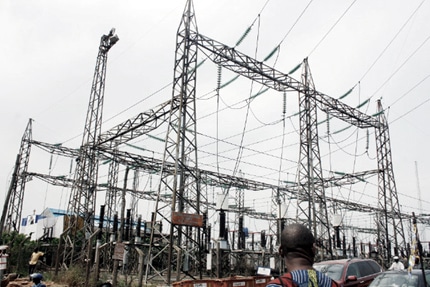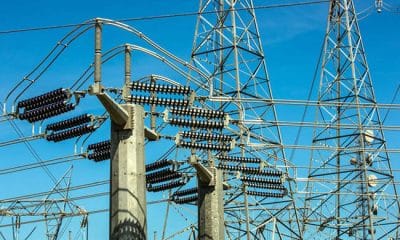Business
National Grid: Power Generation Maintains 4,000MW Upward Supply In 2023

Unlike the bad experiences in 2022, the Nigerian National Power Grid recorded zero collapses in 2023.
The nation’s power sector has also been praised for making tremendous progress recently, considering how the national grid has continued to supply above 4,000 megawatts since January.
Experts revealed that the development is related to the recent deployment of transformers, substations and other accessories to boost supply in the country.
Naija News understands that grid performance data obtained from the Federal Ministry of Power in Abuja on Sunday showed that electricity generation on the national grid as at 6 am on the same day was 4,456.8MW.
A record obtained by journalists for the preceding day showed that the power supply was 4,618.8MW (peak generation); and 4,000.2MW (off-peak generation).
According to The PUNCH, randomly picked figures obtained from the power ministry’s headquarters in Abuja indicated that power generation had stayed above the 4,000MW mark for months.
As of March 2 and 3, 2023, power generation on the grid, reportedly taken as of 6 am, was put at 4,859.8MW and 4,962.7MW, respectively. Meanwhile, it was 4,753.9MW on February 23, 2023, as similar generation figures were recorded in the preceding month.
Deployment Of Transformers To Power Stations
The Transmission Company of Nigeria (TCN) has continued to announce the deployment of transformers and other accessories to power stations nationwide in recent months.
Last Saturday, the federal government agency disclosed that it took delivery of a 100MVA transformer and accessories in its Katampe 132/33kV Transmission Substation under its Abuja region.
“On installation, the new 100MVA power transformer will replace one of the two 60MVA 132/33kV power transformers in the substation.
“This will increase the transformer capacity in the substation from 120MVA to 160MVA,” TCN confirmed via its official Twitter page during the weekend. It also revealed that eight truckloads of transformer accessories arrived in its Benin region of TCN to boost the power supply in the state and across the country.
“The Benin region of TCN has taken delivery of eight truckloads of transformer accessories in its Benin 330/132/33kV Substation.
“The transformer accessories are for the installation of two number 300MVA power transformers that will soon be delivered to the Benin 330/132/33kV Substation.
“The 300MVA transformer project is a part of TCN’s rehabilitation projects funded by the World Bank and on installation, the transformers will add 480MVA to the capacity of the nation’s transmission grid,” the company stated.
Naija News recalls repeated cases of national grid collapse in 2022. The development affected power-demanding establishments, forcing many of them to resolve to alternative power supplies during the time.
Last year, updates from the power sector showed that Nigeria’s power grid collapsed about seven times. It collapsed on September 25, 2022, when power generation on the system crashed from over 3,700MW to as low as 38MW.
On July 20, 2022, Nigeria’s power grid saw the sixth collapse in 2022, while on June 13, The PUNCH reported a grid collapse. The nation’s power system collapsed twice in March and again in April last year.
However, despite the recent stability of the grid, power generation has continued to fluctuate due to various concerns such as gas constraints, water management challenges, and gas pipeline vandalism, among others.
To address these challenges, analysts have admonished the incoming government to give priority to the power sector, stressing that this was among the key demands of Nigerians and various business entities.
“As far as the power sector is concerned and the end-users or the public is concerned, the major priority of the in-coming administration should be energy security,” the President of Nigeria Consumer Protection Network, Kunle Olubiyo, noted..
He added, “Nigeria is one of the leading members of OPEC (Organisation of Petroleum Exporting Countries) and it is quite abnormal and a global embarrassment that in the midst of abundant reserves of gas, crude oil and all other variables that make the energy economy, Nigeria still lacks adequate energy.”



![Police Nab Ex-Immigration Officer Selling Sophisticated Firearms To Bandits In Abuja [Photos]](https://www.naijanews.com/wp-content/uploads/2025/03/Police-NIS-1-400x240.jpeg)
![Police Nab Ex-Immigration Officer Selling Sophisticated Firearms To Bandits In Abuja [Photos]](https://www.naijanews.com/wp-content/uploads/2025/03/Police-NIS-1-80x80.jpeg)







